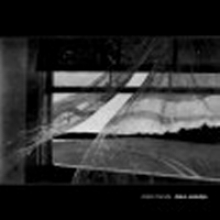MENNO VON BRUCKEN FOCK
ERIKA SZOBÁJA (NL+E)

Het label waarop Erika Szobája van de Hongaarse multi-instrumentalist Tamás Kátai is verschenen, is eigendom van de Italiaan Mauro Casagrande die dat als hobby doet en vooral artiesten uit Oost-Europa onder zijn hoede neemt. Na diverse demo’s is dit het tweede album van deze Hongaar, althans voor zover mijn informatie reikt. Het bevat rustgevende new age muziek waarop op een aantal nummers in het Hongaars gedichten worden voorgedragen door Krisztina Tóth en de maestro zelf. De pianoklanken en achtergrondorkestraties worden menigmaal verrijkt met viool en cello, maar op een wijze, dat het geheel een nog wat somberder en droeviger klankkleur krijgt. Met name de instrumentale nummers zijn aardig al spettert de muziek niet echt. Hoogtepunt is het iets frivolere Renoir’s Garden. Het daaropvolgende nummer is grotendeels puur pianomuziek die erg iel klinkt. Evenzeer wat blikkerig klinken de toetsen en de cello in Night-Light, terwijl de poëzie via een telefoonstem tot ons komt. De pianobegeleiding over de bijna 56 minuten doet wat monotoon aan, maar past op zich prima bij de wat droefgeestige sfeer. De aparte sfeer die Katai weet te creëren ten spijt, vind ik het geen topamusement, maar ik kan de originele aanpak wel waarderen.
ENGLISH:
The Italian Mauro Casagrande runs a record label as a hobby. He has a stable of primarily East-European artists on his label. After making various demos, Erika Szobája is as far as I know, the second album from the Hungarian multi-instrumentalist Tamás Katai. It contains peaceful new age music over which, in a couple of tracks, Hungarian poems are recited by Krisztina Tóth and by the maestro himself. The piano and background orchestration are regularly augmented with violin and cello but in a way, which gives the music a somewhat sad and sombre colouring. The instrumental numbers are on average better, although they never really take off. High point is the more frivolous Renoir's Garden and the track after that is mainly pure piano music with a very delicate production. In the track Nightlight one can hear tinny-sounding keys and cello while the poetry comes via a telephone voice. The piano accompaniment during the entire 56 minutes is fairly monotonous, but fits in very well with the rather melancholy tone of the album. Despite the unusual character of Katai’s music, I do not really find this particularly entertaining, although I do appreciate his original approach.